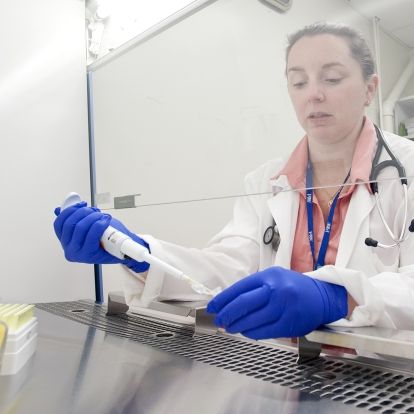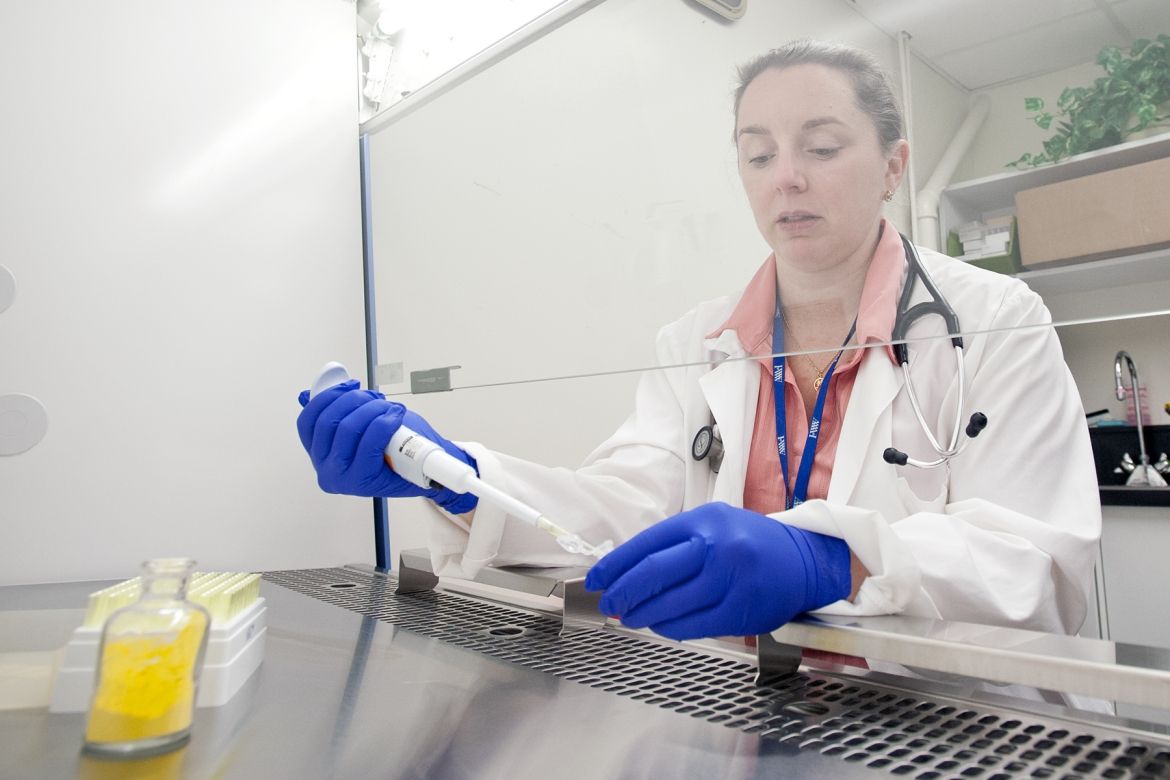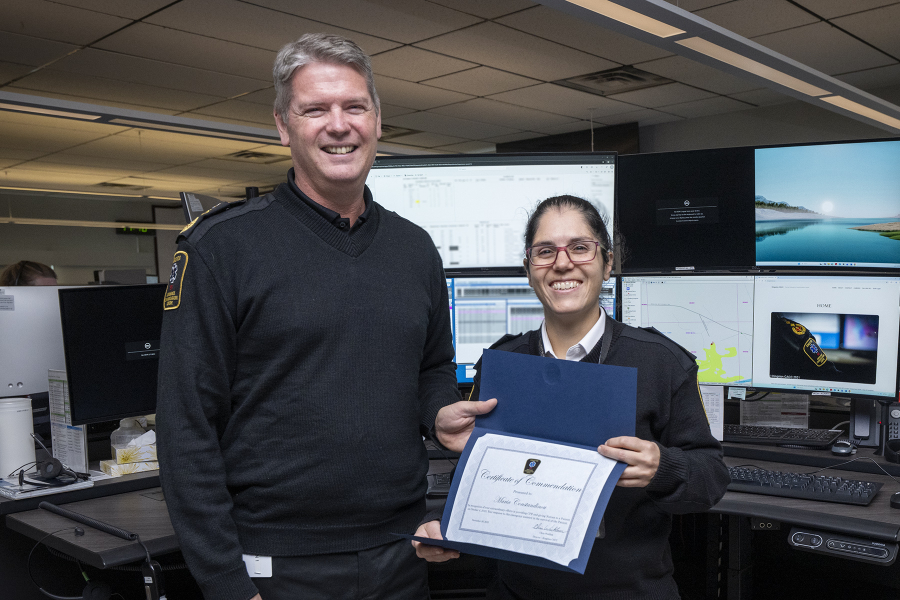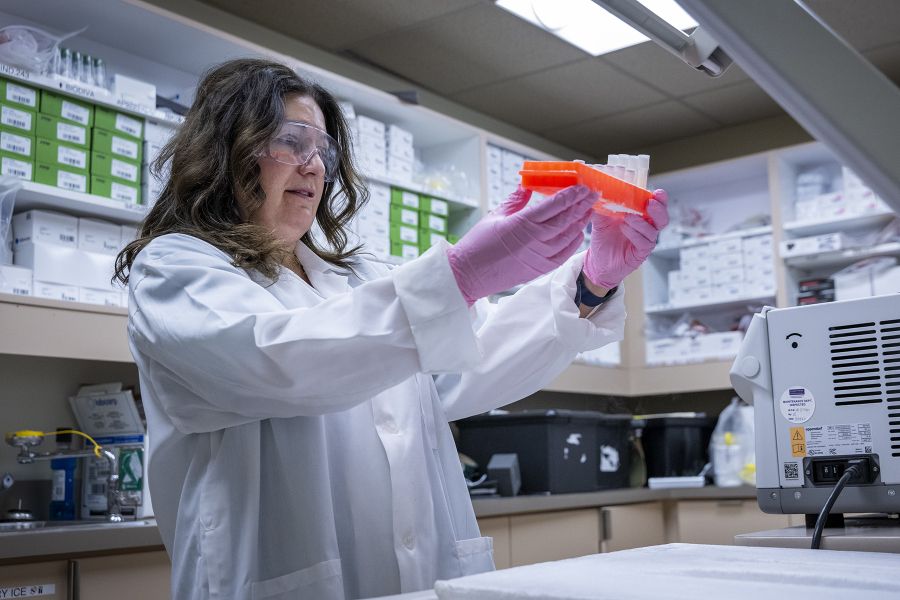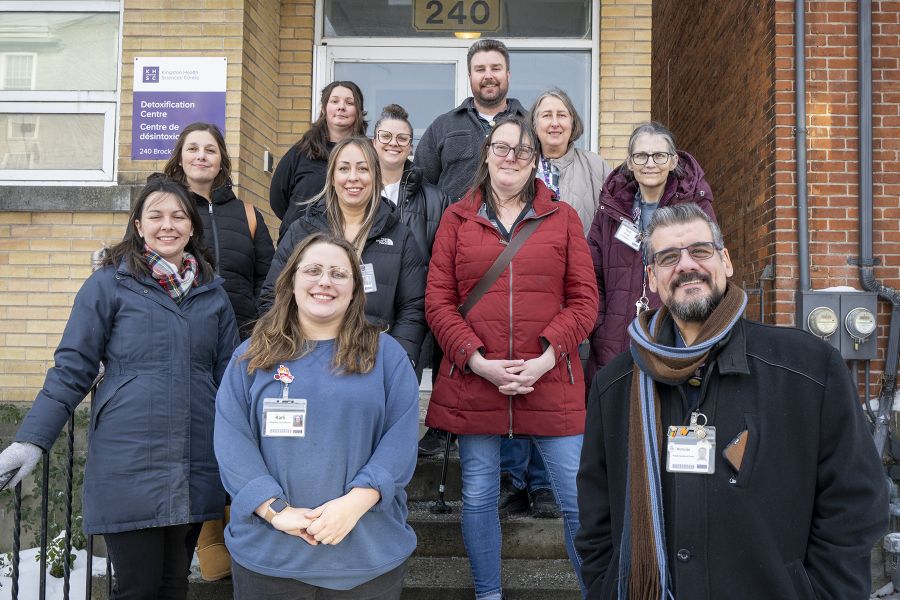Effective immediately masking is required for everyone when present on all inpatient units, in the Emergency Department (ED), the Urgent Care Centre (UCC), and the Children’s Outpatient Centre (COPC).
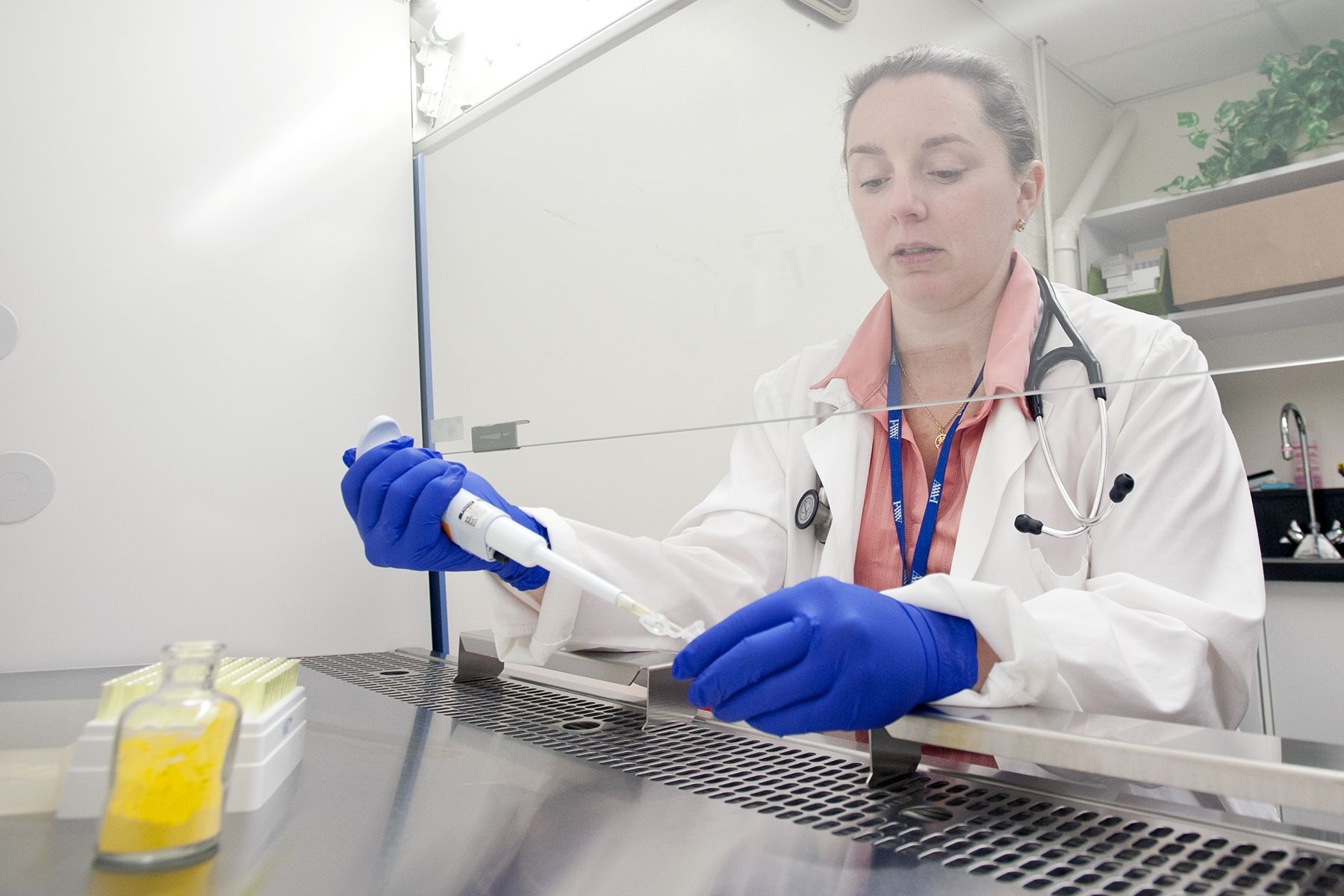
Have you ever seen the Kingston bus advertisements seeking people with springtime allergies for a new research study? They come from our own Anne Ellis, director of the Allergy Research Unit and Environmental Exposure Unit (EEU) at KGH. She's a provincial leader in clinical trials that help bring new allergy treatments and technologies to the market so patients can benefit from more effective care.
Ellis' advertisements showcase just one of the 210 clinical trials that took place at KGH last year. Clinical trials are research studies conducted on human participants. They are often used to help researchers determine new ways to prevent, diagnose or treat medical conditions or diseases by testing the safety and effectiveness of new treatments.
“What's particularly exciting about clinical trials is that we're studying drugs and devices that are completely new, that aren't otherwise available,” says Ellis. “When it comes to allergies, many people don't respond to the most common treatments on the market, like antihistamines and nasal corticosteroids. They welcome the opportunity to find some other form of relief.”
Ellis has helped study that relief for hundreds of people in the Kingston area through the EEU. The EEU allows researchers to test how people react to allergen exposure in a controlled environment, and to measure the effect of anti-allergen medications.
The unit is currently conducting two clinical trials to test the effectiveness of a new type of vaccine for people with grass and cat allergies. While traditional vaccines contain whole allergen proteins that can react with the body to cause a rare, but severe allergic reaction called anaphylaxis, the new vaccine breaks down allergen proteins into very small parts.
“It's theoretically impossible for this vaccine to cause anaphylaxis,” says Ellis, “That's a big breakthrough, and it represents a significant potential benefit to patients. It's exactly these types of studies that help bring our patients the newest and safest technologies that can help better relieve their symptoms.”
Ellis isn't the only KGH researcher conducting clinical trials at the hospital. More than 30 per cent of our researchers have clinical trials underway, ranging in focus from prevention to treatment, and finding new ways to improve quality of life for our patients.
“While the number of clinical trials across Canada has declined by 20 to 30 per cent in the last three years, we've been fortunate to maintain a steady state of open clinical trials,” says Veronica Harris-McAllister, manager of health sciences research. “We're staying on top of the trend by looking at new ways to attract partnerships with government and industry, and streamlining the start-up process for initiating clinical trials.”
The Allergy Research Unit is recruiting people with cat allergies for its new clinical trial. If you or someone you know would like to participate, go to www.kingstonallergy.ca or call 613-546-5300 for more information.

